In January 2012, Nigeria was rocked by massive protests known as Occupy Nigeria. This movement began on January 2 in response to President Goodluck Jonathan’s removal of fuel subsidies.
Sponsored political protests erupted across the country, in major cities like Kano, Lagos, Abuja, Minna, and even at the Nigerian High Commission in London. Citizens engaged in civil disobedience, strikes, and online activism, using Twitter and Facebook to organize and voice their discontent.
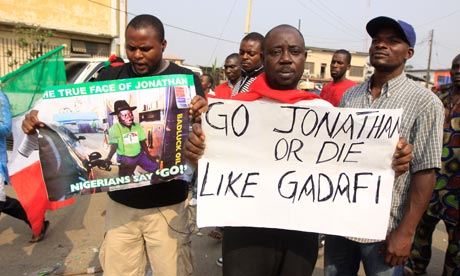
Among those who were vocal during the protests were politicians and self-acclaimed civil rights leaders who have since gone mute in the face of the deteriorating situation of the country today.
Notably, Nobel laureate Wole Soyinka criticized the removal of the subsidy, stating, “A serious government would have emplaced the ‘palliatives’ first.” He went ahead to write several pieces excoriating Jonathan and his wife, for whom he famously coined the word ‘Shepopotamus’ to describe. Soyinka has since maintained silence on the Buhari and now Tinubu administration.
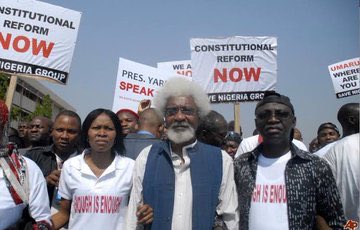
Pastor Tunde Bakare, leader of the Save Nigeria Group, called for Jonathan’s impeachment over the subsidy removal, while legal scholar Itse Sagay accused the government of power abuse. Other notable figures included Tunji Braithwaite, Rotimi Fashakin, Mohammed Fawehinmi, Nasir el-Rufai, and Kayode Fayemi, former governor of Ekiti State who last year, confirmed the political motivation of the protest and tendered a public apology to former president Jonathan.
Many celebrities and entertainers who had a bottomless amount of venom for Jonathan, have since joined in defending the government of today despite the hellish APC administrations of 2015-present. Femi Kuti, Kwam 1, Joke Silva and Desmond Elliot participated, adding their voices to the movement. Also not forgetting veteran actor, Jide Kosoko who adorned the t-shirt with the bold inscription “Kill Corruption Not Nigerians”. It is ironic, given the vast and unchecked corruption we have witnessed between 2015 till date, none of which he has spoken out against.
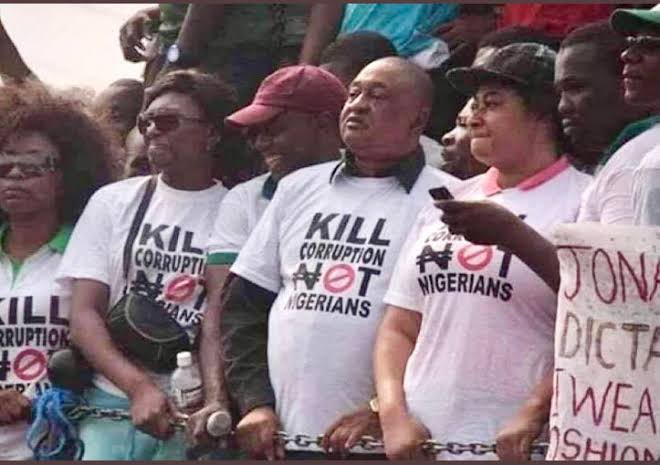
At the forefront of the protest was Maj. Gen Muhammadu Buhari (retd.) and Pastor Yemi Osinbajo who seized upon the movement and went ahead to lead the most disastrous administration yet, in Nigeria’s history.
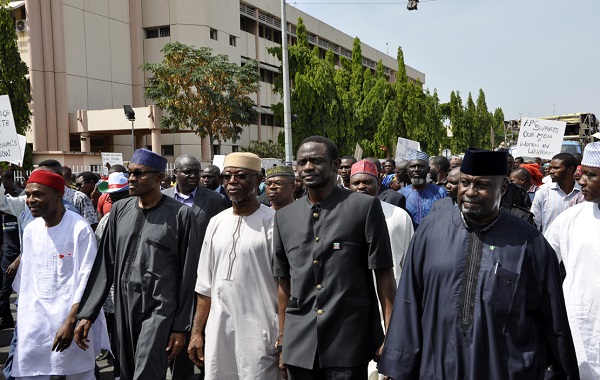
However, a decade later, many of those who protested Jonathan’s policies have remained silent amid severe mismanagement, corruption, and poor governance under Chief Bola Tinubu and his predecessor, Major General Muhammadu Buhari (retd). This silence is especially notable given the harsher economic conditions now compared to 2012.
In 2012, the cost of living was significantly lower. A bag of rice costs N7,400 compared to N78,000 now—a 954% increase. Petrol was N97 per litre, now it’s N700—a 621% increase. A basket of tomatoes was N4,500, now it’s N150,000—a 3233% increase. The dollar-to-naira exchange rate was $1 to N197, now it’s $1 to N1524. Bread, milk and eggs have since gone out of the reach of ordinary Nigerians with a crate of eggs going for as high as N5,200 today whereas it was sold for N800 in 2012 – a 643% jump!
Despite these drastic increases especially during the administration of Chief Bola Tinubu began in May 2023, many former ‘activists’ and vocal critics of Jonathan’s government have chosen to remain silent. This silence is seen as hypocritical by many Nigerians, given their past vehement opposition to similar policies. The public, suffering under worse conditions now, wonders why these voices are no longer speaking out.
Wole Soyinka and other notable figures from the Occupy Nigeria movement have not been as vocal about the current economic hardships. Their silence raises questions about the sincerity and consistency of their activism.
The public is left wondering: where are the voices of #OccupyNigeria now? Why are they silent in the face of the current administration’s failures? The economic crisis continues to deepen, but the once loud voices of resistance have gone quiet, perhaps, to digest the new appointments and endless loot they have been exposed to since taking over power. Soyinka on his part, may still be preoccupied with basking in the euphoria of roads that have recently been named after him to make time to render his promised appraisal on the one-year performance of his friend, Bola Tinubu.
Their silence is puzzling and troubling to Nigerians facing economic hardships, and their past fervour is now seen as possibly opportunistic. This raises important questions about the true motivations behind their activism and the current state of their commitment to public welfare.
Steve Emmanuel
Follow the Parallel Facts channel on WhatsApp: https://whatsapp.com/channel/0029VaCQSAoHgZWiDjR3Kn2E



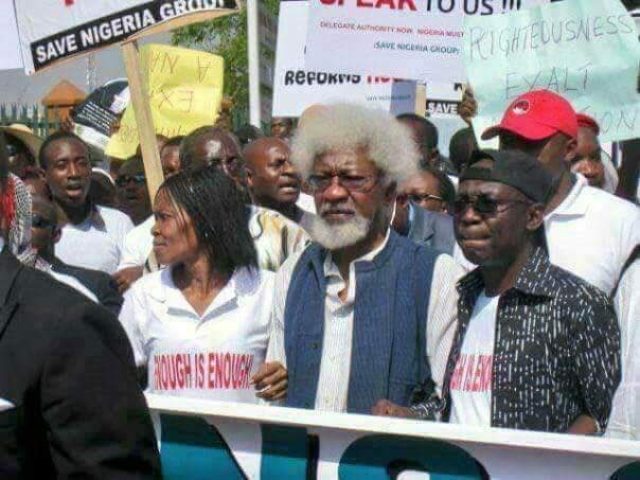
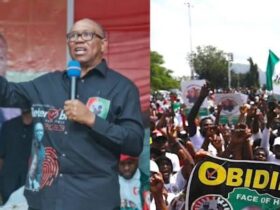
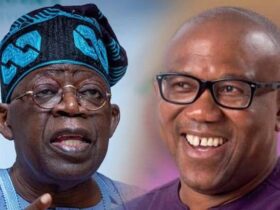



Leave a Reply